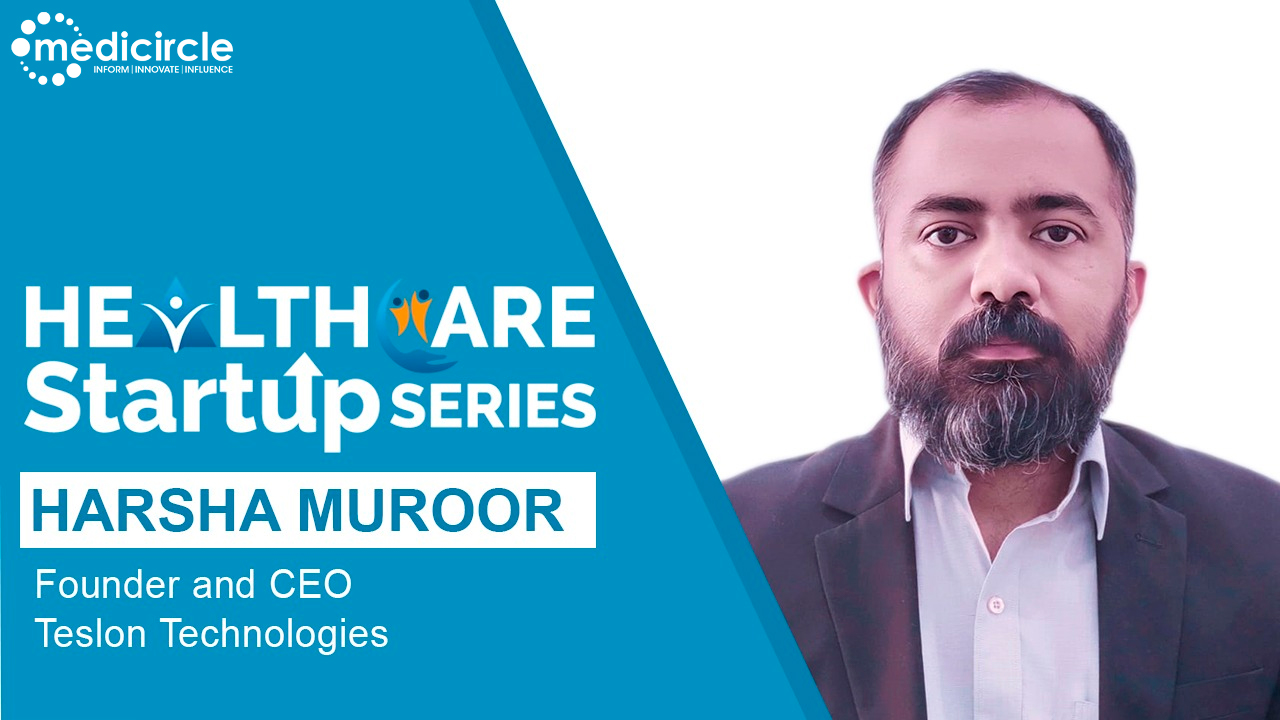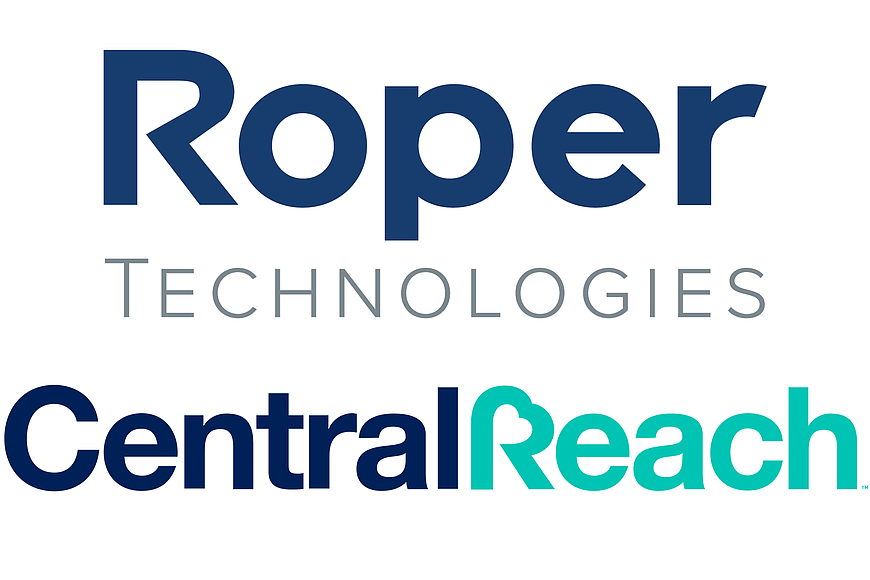Healthcare start-ups have revolutionized the healthcare delivery process for better patient experiences. Like we are seeing so many healthcare start-ups, especially pre and post-lockdowns, which are disrupting the way healthcare was being served and was being consumed by the patients. We have got different problems, challenges in the healthcare system like affordability, availability, and accessibility. But at the same time, we have got a lot of start-ups who are offering the right solutions to these kinds of problems and challenges.
Harsha Muroor is the founder and CEO of Telson Technologies. He's an innovator and entrepreneur with a deep passion for technology and ambitions, transforming healthcare, using it.
Prior to Teslon, he has worked for six years, so was for six years at Cisco and during the course of his startup journey, he was also part of the prestigious Cisco Launchpad accelerator, where he led the company to win the Best StartUp Award for the first cohort. At Tesla, the team currently builds healthcare products, making use of cutting-edge technologies, especially, machine learning and AI that make a difference in the lives of people in seven different countries. And Harsha also has multiple certifications for his team, like managing innovations design thinking, Cisco Certified network associate, and also a sun certified java programmer.
Contribution for Teslon in healthcare
Harsha Muroor says, “Broadly, you can classify them in the categories one is the accessibility of care. The second one is the quality of care, and also the cost of care, So we have startups in India, who are trying to handle one or more of these challenges, and thereby improving you know, the healthcare situation in India, and also you rightly pointed out that the social not contributing to the socio-economic growth.
While the startups like Practo and 1 mg have been in the mainstream, with consumer-focused healthcare technologies, there have been a vast number of startups like ours, which are focused more on working with hospitals and governments, and traditional healthcare players, to see how we can solve challenges, more from clinical relevance on the solutions, as well as, usage of technologies like AI.
So working closely with these healthcare providers does pose its own set of challenges.
But it also comes with advantages and opportunities. It helps us build solutions that are more clinically relevant, as well as solutions that are adhering to Global Healthcare standards, both in the profitability of data as well as patient data safety. And this has helped us to not just deliver solutions later, but also take the same solution and then position that across the group.”
Challenges for Teslon in healthcare
Harsha Muroor informs, “Focus is essential to remain on the right track. When you try to work closely with the problems on the ground, you inherently run into these, cross-cutting concerns that need to be addressed. And that kind of gets into, you know, the providing of a solution that can really solve that challenge in the end. Of course, there are parts that you can borrow from elsewhere, but then there are gaps that are there that need to be filled. So, the structure that has worked for us is that we haven't been focused so much on being like you know, overvalued company and stuff rather the structure of Teslon and such has been as a transformational launch price.
A transformation enterprise, it is nothing but sort of a company that is focused on the social impact that it can take. But at the same time, it is also focused on profits for sustainability. So it's not really a nonprofit that is focused on profit for sustainability. But the idea is to go and solve real problems.”
Product offerings of Teslon in healthcare
Harsha Muroor informs, “Well, as long as the company's condition is the brand and a product that is built with cutting edge technologies, and also be returned to the healthcare standards, right. And we focus on the sort of redefining how to instill healthcare delivery processes. And it is, quite simply today, we did take on nice, small little challenges that have to be solved to kind of do this into a problem solution. So, what we have today, being able to do recognition as a platform is quite simply one of the most comprehensive healthcare platforms.
We cover remote healthcare screening, ICU care, different forms of telemedicine, vending machines, screening diligence, and also COVID care in a lot of different hospitals, both in India and abroad
So, we've been able to build a solution that really solves the problems sticking to those standards with existing AI systems, as well as being compliant with the patient data safety guidelines.”
Reach of Teslon in Healthcare Sector
Harsha Muroor informs, “We strongly believe that access to timely and good quality healthcare is a right of every individual and we seek to solve those challenges with that access to that care. We really focus on being that transformation on purpose. So we are actually more invested in the social impact that we create, and not only about the huge profits that come about, so we've been able to solve these accessibility challenges in deep pockets of Western India. And we've also worked in remote corners in Srinagar, where we deployed our pods, we have done it in the Northeast in regions with a very tricky credit range.
While at the same time we have done a system like the National telemedicine system in Greece, where we have connected about 70 different islands to the main hospitals you know with care delivered on the same platform. So, it is the same platform that is serving developed countries in the EU, as well as, the deep pockets of India. So, we've been able to do that. And while that is one side of the story around all these healthcare activities that they're solving, we also do understand that with the advancement of healthcare, and the corresponding increase in cost. The challenge is that this essentially makes the much-needed care inaccessible to the poorer sections of the population. And risk pooling is very critical. As you know, most of these critical procedures are unexpected. Most times it's not possible without risk pooling, and we need to work collectively to ensure that this universal health insurance becomes a reality. Also, we believe that technology can help by augmenting the current healthcare system to help reduce costs. And also, the focus on you know, the screening is important. I'm strengthening the public healthcare infrastructure is really critical. And it is not just in the rural areas, it's also in the metros.
Today, you might feel that, you know, people in the metros have access to good quality of care, but then it is not always affordable for those people who are poor within the metros as well. So we need to strengthen the public health infrastructure, not just in the rural areas, but also in the metros. That is really essential, as well as important.It is essential to solve these affordability expectations. Quality of care is, in general, better with India today, because we have great hospitals that have a lot of influx of patients that are coming in. But unfortunately, it is not always accessible to the population that is here.”
Teslon Journey
Harsha Muroor informs, “Startups, definitely, when you're a good start is a really, difficult time it takes a toll on you. But at the same time, it has also helped us be more focused on what we want to do, and not really kind of really just focus on investor interest. So that has been something that has given us the flexibility to be more passionate about the problem that we're solving. And that's what's kept us going quite frankly, for the last seven years and for the years to come. That will be the one that will keep us going.”
Rapid-fire
Harsha Muroor says, “Healthcare - Something that sits into a necessity for everyone.
Business-Sustainability
Life -love peace, care
Success- Collective
India- A global healthcare leader
Message from expert
Harsha Muroor says, “Today in this fast-moving world, it's always easy to forget empathy. And my message for today would be for not as entrepreneurs, for everyone to have more empathy. That's what you need to have when you're getting into healthcare, empathy towards the patient, understanding what are the patient's problems, the patient's challenges, and also the challenges on the healthcare provider side. So that, you know, once you have empathy towards them to solve their challenge, because of the empathy, you will do it as if you're solving it for your loved one, or for yourself. And that, again, makes you more responsible as well. Healthcare has got a lot of opportunities, growth, and potential for business along with responsibility. So do it right from the data safety or the patient safety point of view, you need to be kind of cognizant of those things is empathy.”
(Edited by Dr.Rati Parwani)

 Harsha Muroor shares insights about being a problem solver for patients in the healthcare domain. His words of motivation are truly worthy in this video for every budding entrepreneur. A must-watch video for all healthcare professionals and start-ups. He also informs about his journey of Teslon in creating a mark in healthcare.
Harsha Muroor shares insights about being a problem solver for patients in the healthcare domain. His words of motivation are truly worthy in this video for every budding entrepreneur. A must-watch video for all healthcare professionals and start-ups. He also informs about his journey of Teslon in creating a mark in healthcare.






.jpeg)






.jpg)






.jpeg)



.jpg)




.png)



